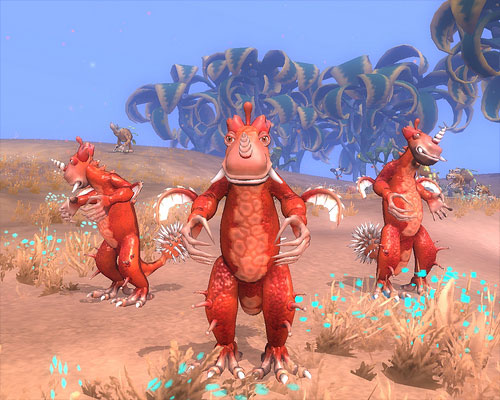
If we can learn anything from the troubled launch of Spore, a videogame many people have been looking forward to for years, it is that binding products with digital rights management (DRM) restrictions hurts more than it helps. Spore, designed by Sims creator Will Wright, went on sale a week ago. It is expected to sell 2 million copies in September alone, and is currently the No. 3 best-selling game on Amazon.
But it also has one of the worst ratings on Amazon (2,016 out of the 2,216 ratings are one star) because of a concerted campaign by fans protesting its DRM. It has also been downloaded an estimated 500,000 times on BitTorrent, and is well on its way to becoming the most illegally downloaded game ever.
The DRM that comes with the official game only allows customers to use it on three machines (after that you have to call EA for permission to activate the game on additional machines). This is nothing more than an inconvenience. Gamers, in general, are more likely to have more than one computer, and to cycle through computers faster than other PC owners because they always want the latest, greatest, and fastest machines. Many will hit that three-machine limit quickly.
Maybe EA should join the rest of the entertainment industry in coming up with a consistent DRM policy. Unlike iTunes, which imposes a five-machine limit on most purchased songs and movies, there is no way to associate new machines or disassociate old ones from your account online. You have to call. That does not scale.
So now EA has a consumer backlash on its hands, and not because consumers don’t like the game, but because they don’t like EA telling them what they can do with the game after they’ve paid for it. What is worse, the DRM is obviously not stopping pirated versions from getting out there. And since the pirated version is DRM-free, many gamers consider it a better product than the DRMed one that Electronic Arts is trying to sell.
The silliest part of this whole affair is that EA has a much more effective weapon against piracy than the DRM: the game itself. Many of Spore’s most interesting features, such as the ability to upload characters you create and explore worlds created by other players, have an online component. These are integral to the gameplay. All EA needs to do is to turn these features off to anyone who cannot prove that they’ve actually purchased the game. Then no self-respecting gamer will want that pirated copy.
There is a lesson here for all media companies. Whether they are producing videogames, movies, or music, adding DRM won’t stop piracy. The best way to stop piracy is to hobble the pirated version, not the official one.
(Image via Danja Vasiliev).